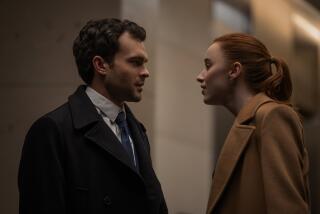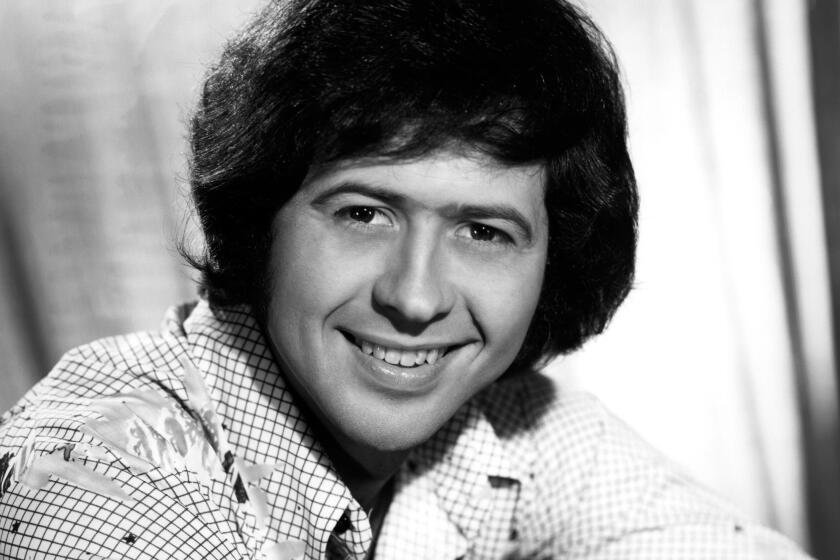JAZZ REVIEW : Fourplay’s Sugary Numbers Need Spice
- Share via
ANAHEIM — Fourplay is decidedly user-friendly. Just as such groups as Les McCann’s trio and George Shearing’s quintet provided lightweight but very enjoyable selections during the ‘50s and ‘60s, Fourplay--guitarist Lee Ritenour, pianist Bob James, electric bass player Nathan East and drummer Harvey Mason--offers a distinctive yet unobtrusive assortment of mostly instrumental vehicles in the contemporary jazz and pop-jazz veins.
The group has found a niche: Its debut Warner Bros. CD topped the Billboard contemporary jazz charts for several weeks last year and its new “Between the Sheets” album currently holds the same position.
Fourplay definitely pleased the 1,000 or so fans who turned out Saturday at the Celebrity Theatre, where one unobtrusive selection led to another, each greeted with robust applause and, at concert’s end, a standing ovation.
But if a listener wanted something with teeth and musical grit. . . .
Only on a few numbers, the opening “Moonjogger” and Mason’s “Amoroso” among them, did the group really stretch and explore its potential for creative expression. Still, music that is generally pretty and melodic, that has some rhythmic whammy, and is well-played by four first-rate musicians can’t be all bad, can it?
James’ “Chant” and Ritenour’s “Summer Child” were typical of the tightly rehearsed, easy-listening approach.
“Chant,” featuring one of several breathy, wordless vocals by East, found James playing a solo packed with notes as warm and sunny as a spring day on a tropical beach. Later, Ritenour moved between brief phrases, offered as deliberately as a fullback making a five-yard plunge for the goal, and rapid lines, like two kittens chasing each other around the living room.
“Summer Child,” dedicated to Ritenour’s newly arrived son Wes, was soft and slow, built around a pop-like melody that has the gentle glow of a baby’s smile. East’s solo here was a highlight, an alluring improvisation, one group of sweet-sounding notes after another.
East’s “101 Eastbound” was a good example of the quartet’s fine use of dynamics. One moment, Mason was banging on his drums with the others in tow and then, in a snap of a finger, he and his teammates dropped their playing to a whisper.
James used his electronically altered grand piano to issue tones that flowed up and down, curving dramatically as a roller coaster in full run.
Some numbers were less successful. On “Between the Sheets,” East’s vocal was OK, but he sang innocuous, who-cares lyrics. The encore, “After the Dance,” was equally forgettable.
But the group really came alive during “Amoroso,” with James dropping in jagged, angular lines that had bite, and “Moonjogger,” with Ritenour displaying his gorgeous Wes Montgomery-like sound via some chunky chord strumming.
More numbers like these, with tempo variations and heated soloing, would add needed spice and balance to a show that sometimes smothered one with prettiness.
More to Read
The biggest entertainment stories
Get our big stories about Hollywood, film, television, music, arts, culture and more right in your inbox as soon as they publish.
You may occasionally receive promotional content from the Los Angeles Times.










